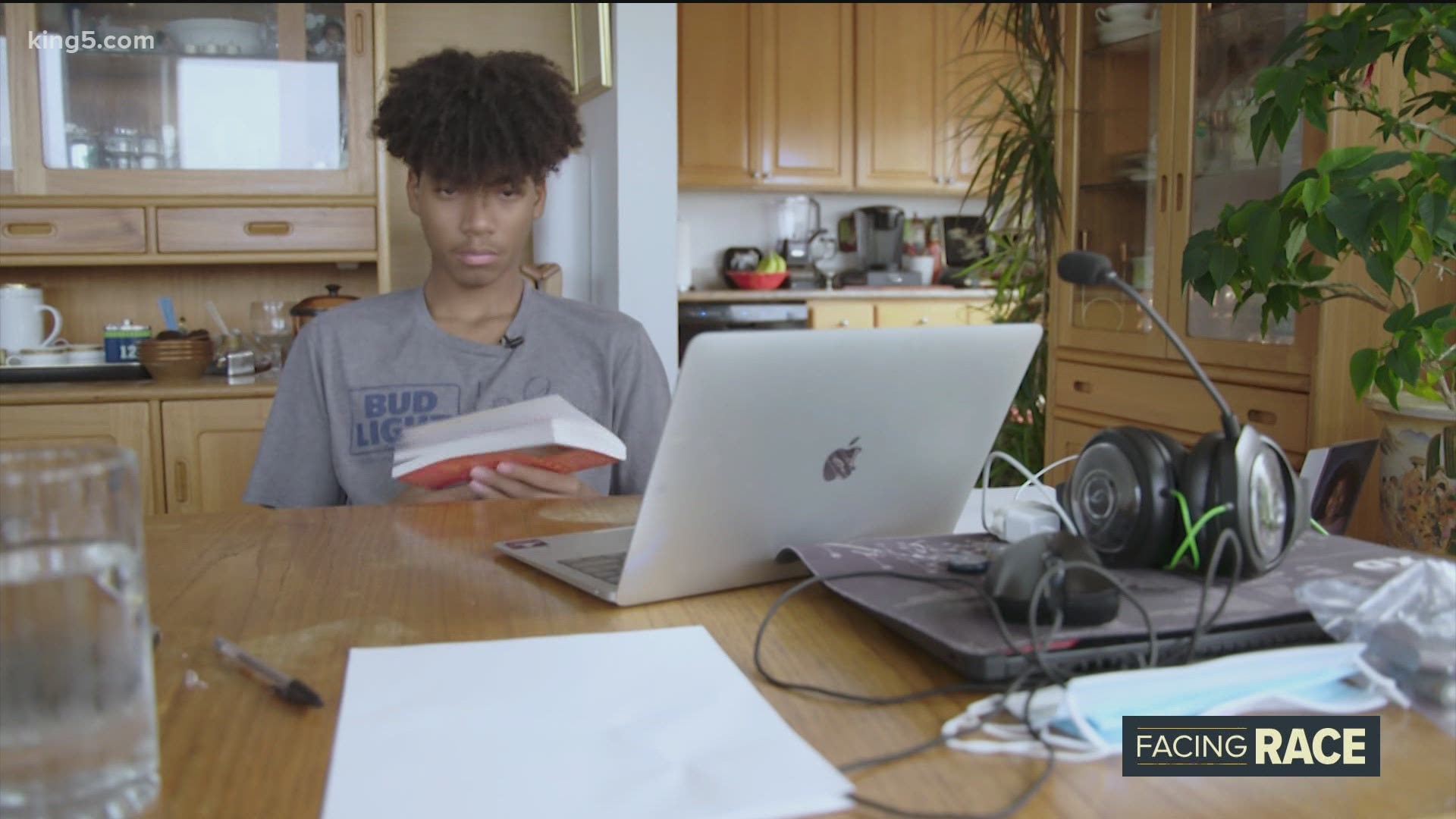For many people of color, their first experiences with racism happened when they were very young.
At 15 years old, Malachi Muzzey hasn’t known a time when he’s felt truly understood.
“I knew right off the bat that I was going to have more struggle in this world than one of my white friends or one of my peers, solely based off something I can't control," said Muzzey.
Muzzey says he’s carried this burden for as long as he can remember.
“It feels very otherizing, it feels like I don't belong, it feels like I'm lower than. It feels, a lot of things that a person in America isn't supposed to feel," said Muzzey.
Muzzey describes feelings of unacceptance using a concept called otherism.
“The majority of people in my class can either fit themselves in one of these three categories, right? They're white, wealthy, and they're super privileged because of all the wealth that comes with that, and it feels like when I'm the only kid who looks like me in my class, it makes me feel like I always have to choose D, which is the other," said Muzzey.
WATCH: Full episodes of Facing Race
Muzzey isn’t alone. Kids much younger than him already face racism and Islamophobia from their classmates.
When asked if there’s been a time when someone said something about skin color that made her feel different, Lydia Choi said, yes.
"During school lots of people criticize Asians and stuff, that they have to be like smart or that they have to have like a yellow tint in their skin or their eyes are always tiny and stuff," she said.
Hussein Hyek was asked the same question and said he experienced Islamophobia and being bullied in school.
Mental health therapist Toni Williams, who helps kids process their experiences with racism, says these experiences are a form of trauma.
“Often times we may not even know that a traumatic event happened and it could be something as miniscule as someone asking you, 'Why are you so dark?'" said Williams.
When asked if there was a time someone said something about skin color that made him feel different, Muzzey said there were many.
“The peculiar time that I can think of was when my eighth grade Spanish class where my teacher, who I'm not going to name just for private reasons, she addressed me as aggressive," said Muzzey.
Williams quickly identified Muzzey's experience as a microaggression.
“It comes from lack of representation in schools, cultural competency," Williams said. "Aggression for our Black kids is different when it's aggression in white kids. It's seen as they're just being naughty, they're voicing opinions, but with our kids, you're being aggressive, you're threatening, I need security when it just may be passion, and that hinders growth in our children too, because now they feel as though their opinions don't matter."
Williams said she’s very concerned about how racism impacts young Black boys like Muzzey, who may feel such a sense of loneliness.
“Walking around with that burden on you and that responsibility, at what point and time are you able to grow and be who you are as a person," said Williams.
Williams says racist experiences can chip away at kids’ personalities, making it crucial for parents to check in with their kids at least once a day.
Williams provided these tips on how to talk to kids about racist experiences:
- Start having conversations about race early.
- Inquire about what they know about race and that may be considered racism.
- Discuss the difference between blatant racism, microaggressions and discrimination.
- Check in with kids to see if they've ever felt they were treated unfairly due to their race. Williams said it's important to listen and validate their feelings.
- Share your own experiences and how you dealt with the situation(s).
- Talk with your children about the importance of speaking up when they feel as though they are not being treated fairly.
- Encourage children to talk about the feelings they have so it doesn't affect their health.
- Teach children how to respond to racism. Role play and give hypothetical scenarios so you are equipping children with the tools on how to handle these situations when they arise.
- Affirm your children with your words, encourage them in their areas of interest, remind them they matter and continue to expose children to new things and cultures so you are raising a new generation of children who respect and appreciate others for their differences.
- Williams said it’s important to assure children that racism does not define who they are as a person.
This story was produced as part of “Facing Race,” a KING 5 series that examines racism, social justice and racial inequality in the Pacific Northwest. Tune in to KING 5 on Sundays at 9:30 p.m. to watch live and catch up on our coverage here.

